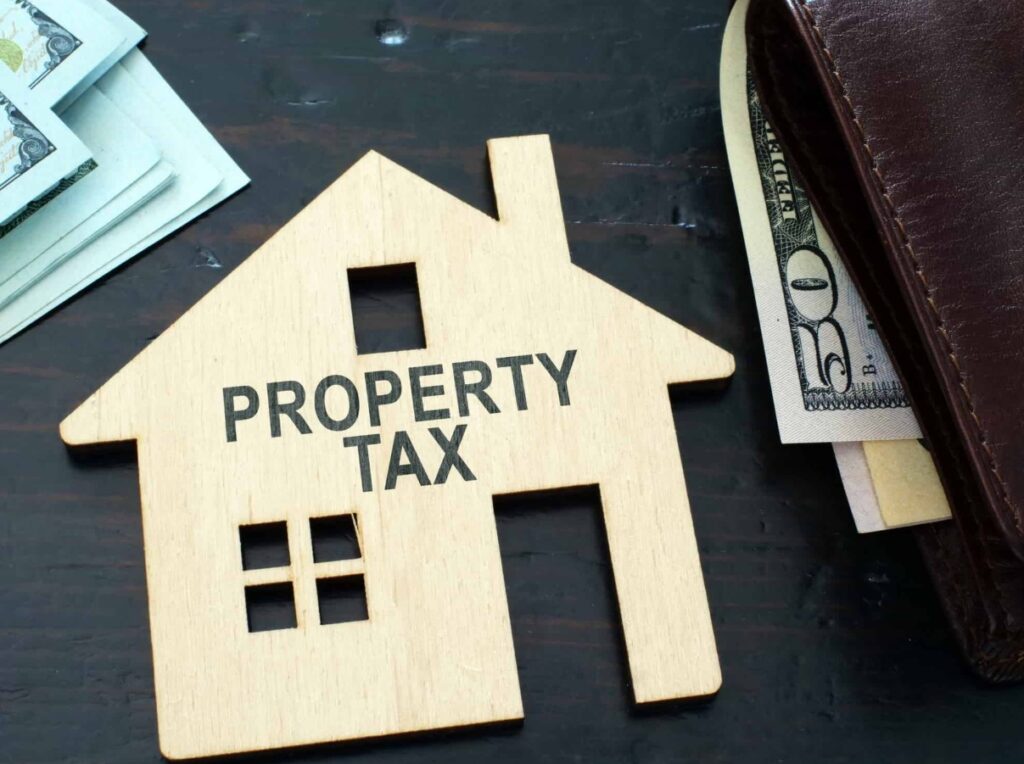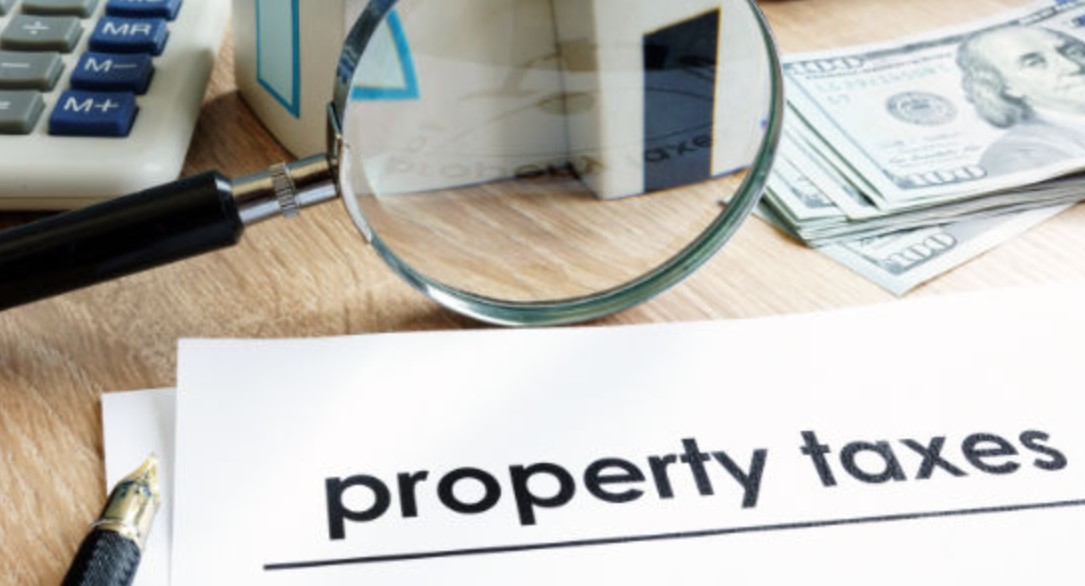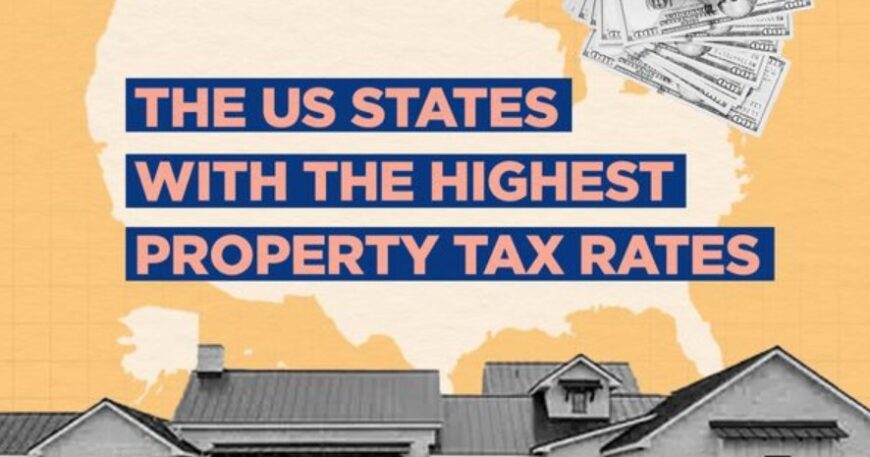Property taxes are a crucial aspect of home ownership, and understanding how they work is essential if you are a homeowner, investor, or business owner. In this article, we will investigate what property tax is, discuss the specifics of property taxes in New York City (NYC) and New Jersey (NJ), define personal property taxes, and clarify whether property taxes are deductible. By the end of this guide, you’ll understand NYC Property Tax in detail and their impact on your finances.
What is Property Tax?
Property tax is government levied tax on property that you hold. It is an important source of revenue for local governments, who use public funds generated this way to finance public services such as schools, police, fire companies, and highway maintenance. Property taxes are levied on the value of property you hold, both land and any buildings upon it.
Governments levy properties at various types of properties including residential property, commercial properties, and open land. The value of the property determines your tax, and your rate can vary greatly based on where you are located.

Major Components of Property Tax
Assessed Value: This is how much your property is worth to the local tax agency. It may not be the same as the market value of your property. But it is the figure used to determine how much you pay in taxes.
Tax Rate: The local government has a tax rate on properties, which typically comes in the form of a percentage. They then apply that rate to your property’s assessed value to determine how much you owe.
Exemptions: Some properties are exempt or reduced from property tax. For instance, in the majority of areas, specific properties like schools, government offices, or churches are exempt from paying property tax.
Property taxes may fluctuate, and rates will differ in one location versus another. Let’s take a closer look at how property tax functions in certain areas, starting with New York City and New Jersey.
NYC Property Tax
New York City (NYC) real estate taxes are complex and distinct from the remainder of the United States. The NYC property tax system utilizes a classification system with four classes of property, each taxed at varying rates.
How NYC Property Taxes Are Structured
NYC property taxes are taxed on an annual basis, and the tax rate is based on what kind of property you own. The four classes of property are as follows:
1) Class 1: One- to three-unit residential structures (such as single-family homes and small apartment buildings).
2) Class 2: Three or more unit properties (such as large apartment buildings).
3) Class 3: Utility properties, like electric and gas utility buildings.
4) Class 4: Commercial buildings, such as office buildings, industrial buildings, and shopping centers.
Each class of property has its rate of taxation and assessment. NYC property taxes are based on the “assessed value” of the property as assessed by the NYC Department of Finance. For residential homes, the assessment is usually less than the market value of the property, which can make tax bills manageable.
How to Calculate NYC Property Taxes
The basic formula for calculating your NYC property tax is:
Property Tax = Assessed Value x Tax Rate
However, due to the special assessment system. The final tax bill could also consider others such as abatements, exemptions, and appreciation or depreciation of the value of property over time.
Tax Deductibility of NYC Property Taxes
NYC property taxes, like in the rest of the U.S., are deductible for federal income tax purposes, but you must consult with a tax expert regarding the amount you can deduct.
NJ Property Tax
New Jersey property taxes are amongst the highest in the nation. New Jersey’s property taxation system is also value-based on property and varies from municipality to municipality.
How NJ Property Taxes Work
The local municipal government collects New Jersey property taxes. In many municipalities, there is an Assessor’s Office that computes the value of the property and the tax based on the municipal tax rate.
Unlike NYC, where tax rates are determined by property class, NJ property taxes are calculated by multiplying the assessed value of your property by the local tax rate, which is determined annually by the municipality.
How to Calculate NJ Property Taxes
To calculate your New Jersey property tax, you’ll need to know your property’s assessed value and your municipality’s local tax rate. The formula is as follows:
Property Tax = Assessed Value x Local Tax Rate
In New Jersey, property taxes are usually paid quarterly. It’s also important to mention that the state’s property tax rates can be quite different depending on the location, and some locations may provide exemptions or credits that can lower your total tax burden.
Property Tax Relief in NJ
New Jersey provides several property tax relief programs for qualified homeowners, such as:
Homestead Benefit Program: Provides property tax rebates to eligible homeowners based on income and the assessed value of property.
Senior Freeze Program: Intended for senior citizens, the program freezes property taxes for eligible individuals so that the tax rise ceases for senior citizens over the age of 65.
The programs help to ease the burden of property taxes, particularly for seniors and low-income individuals.
Personal Property Tax
Personal property tax is also different from real property tax as it is charged on movable items or personal possessions not fixed on the land or building. Car, ship, machine, and equipment are a few examples of personal property.
How Personal Property Tax Works
Personal property tax typically is imposed based on the worth of the property, just like real property tax. Personal property tax typically is imposed on businesses rather than individuals, although some states impose personal property tax on vehicles and other personal property owned by individuals.
In all other states, firms are mandated to file an annual return of their personal property, and the local authorities impose taxes on the value of such property. In a couple of states, such as Texas, only business property is subjected to personal property tax, but other states, such as Louisiana, may also tax personal property, including
Yes, let us dig deeper into the nitty-gritty of property tax with details on personal property taxes, deductions, etc. This will give you a better overall understanding of how property taxes work and how they are different from areas like New York City (NYC) and New Jersey (NJ), and what it means for personal property tax.

Personal Property Tax: Understanding Its Scope
Personal property tax typically applies to movable property that doesn’t belong to the realty or the land itself. While real property tax is bestowed upon tangible land and buildings, personal property tax is bestowed upon anything ranging from machinery and fixtures to cars and intellectual property depending on your state.
Types of Personal Property
Personal property exists in two basic forms:
Tangible Personal Property: These include tangible items such as:
Vehicles (autos, bikes, trucks, etc.)
Equipment of business (machine, furniture office, computers)
Boats and recreational motorhomes (RV’s, etc.)
Intangible Personal Property: Those are things without physical forms, like:
Shares and securities
Patents, trademarks, and copyrights
Account or bank in accounts receivable (not usual for individual tax, but may be useful when it comes to business uses)
How Personal Property Tax Functions with Businesses
For businesses, personal property tax is an important factor in how much it will cost to conduct business. Business owners typically have to file a return for personal property tax to local tax agencies, reporting the value of the company’s personal property. Local governments then estimate the value and apply a predetermined rate of tax.
Businesses can reduce tax liability by deducting, crediting, or exempting based on the local or state jurisdiction.
Personal Property Tax for Individuals
Some states also charge individuals personal property tax. The most common examples are motor vehicle, boat, and recreational vehicle taxes. These are usually collected annually and are property value-based. The tax is usually sent to the state Department of Motor Vehicles or local governments in most cases.
For example:
Motor Vehicles:. Automobiles in California and elsewhere are taxed as personal property (or vehicle registration fee) based on the value of the car.
Recreational Vehicles and Boats: Like vehicles, they are generally taxed on their value. The higher the value of your boat or RV, the higher the tax.
Personal Property Tax Exemptions
The majority of states offer exemptions for certain personal properties. For instance, manufacturing-use machinery may be exempt from personal property tax in certain states, or exemptions on agricultural-use vehicles may be present. Individuals and businesses need to check with their local government to determine whether any exemptions are available for their personal property.
Is Property Tax Deductible?
Possibly the most often posed property tax question is if it is deductible on a tax return. The answer depends upon several factors, such as whether you own your home outright. Whether you’re self-employed, and whether you use the property for personal or business purposes.
For homeowners, property taxes are deductible, although with some important rules to keep in mind. On your federal tax return, you can deduct the payment of property taxes on your primary residence and any other real estate you own. This deduction falls under the umbrella of itemized deductions on Schedule A.
SALT Cap and Property Tax Deductions
With the Tax Cuts and Jobs Act (TCJA) of 2017, the deductible limit of state and local taxes (SALT), including property taxes, is limited to $10,000 ($5,000 for married couples filing separately). This means that if you live in a high-tax state like New Jersey or New York, you will not be able to deduct all your property taxes in case they exceed this limit.
Deduction of Property Taxes on Secondary Residences
Secondary residences such as vacation homes or rental properties may be deducted also from property taxes. The regulation does not change but can come under the SALT cap as well.
Property Tax Deductions for Business People
If you own a business, property taxes on a business can be claimed as a business expense. For example, if you own commercial real estate, personal property, or any assets used in your business activities, you can claim property taxes as a business tax return deduction.
The business owners ought to maintain correct records of all the property tax that they paid on any property belonging to the business. They may be used as part of the calculation when figuring deductible expenses.
Property Tax Deductions on Investment Properties
If you own investment properties, such as rental properties. The property taxes you pay on these properties are also tax deductible as a part of your rental expenses. This may bring down your taxable rental income, and hence your tax burden.
How Much of Your Property Taxes Are Tax Deductible?
As mentioned, for homeowners, property taxes are tax-deductible on your federal tax return if you itemize deductions. However, due to the SALT cap, there is a limit to how much of property taxes you can deduct.
SALT Cap Details
The SALT (State and Local Tax) deduction permits taxpayers to deduct as much as $10,000 of their aggregate state and local taxes, including property taxes, state income taxes, and local sales taxes. Married couples filing separately can only deduct up to $5,000.
If your aggregate property taxes, in addition to state and local income or sales taxes, exceed this amount, the excess will not be deductible.
Example of Limit on Property Tax Deduction
Let’s say you live in New Jersey, where the property taxes are among the highest in the country. Your property taxes on your home for the year are $15,000, and you also pay $5,000 in state income tax. Under the SALT cap, you can only deduct a combined total of $10,000 in state and local taxes (which would be the combination of the property and income taxes), so $10,000 is the maximum you can deduct.
Why Are Property Taxes So High in Some Places?
Property taxes vary widely from state to state, county to county, and even neighborhood to neighborhood. Some of the most significant reasons for high property taxes include:
Local Government Needs: Property taxes are one of the primary sources of revenue for local governments. If a local government needs more money for schools, police, and other public services, it can increase property taxes to




